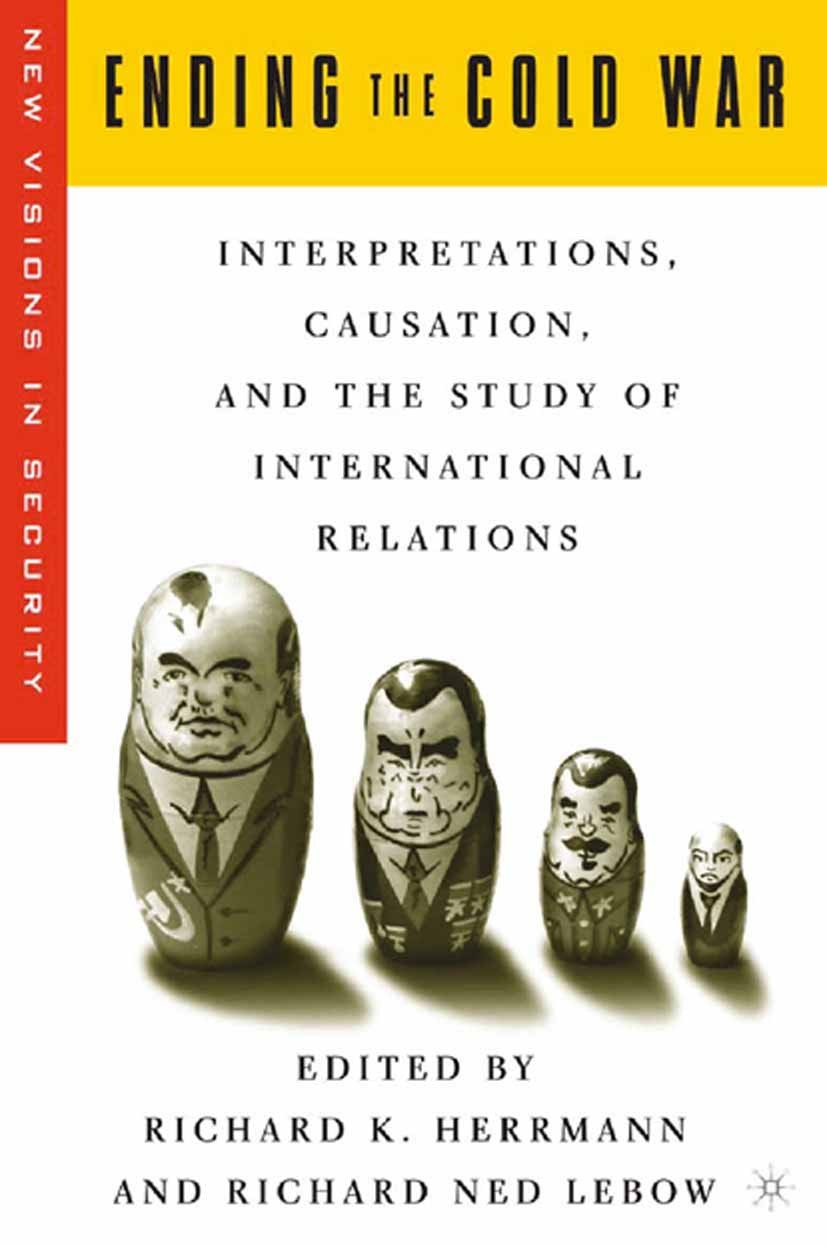| 书目名称 | Ending the Cold War | | 副标题 | Interpretations, Cau | | 编辑 | Richard K. Herrmann,Richard Ned Lebow | | 视频video | http://file.papertrans.cn/310/309674/309674.mp4 | | 丛书名称 | New Visions in Security | | 图书封面 |  | | 描述 | Although in hindsight the end of the Cold War seems almost inevitable, almost no one saw it coming and there is little consensus over why it ended. A popular interpretation is that the Soviet Union was unable to compete in terms of power, especially in the area of high technology. Another interpretation gives primacy to the new ideas Gorbachev brought to the Kremlin and to the importance of leaders and domestic considerations. In this volume, prominent experts on Soviet affairs and the Cold War interrogate these competing interpretations in the context of five ‘turning points‘ in the end of the Cold War process. Relying on new information gathered in oral history interviews and archival research, the authors draw into doubt triumphal interpretations that rely on a single variable like the superior power of the United States and call attention to the importance of how multiple factors combined and were sequenced historically. The volume closes with chapters drawing lessons from the end of the Cold War for both policy making and theory building. | | 出版日期 | Book 2004 | | 关键词 | Arms Control; Cold War; conflicts; Europe; experiment; German Unification; international relations; learnin | | 版次 | 1 | | doi | https://doi.org/10.1057/9781403982810 | | isbn_softcover | 978-1-4039-6384-0 | | isbn_ebook | 978-1-4039-8281-0Series ISSN 2945-6770 Series E-ISSN 2945-6789 | | issn_series | 2945-6770 | | copyright | Richard K. Herrmann and Richard Ned Lebow 2004 |
The information of publication is updating

|
|
 |Archiver|手机版|小黑屋|
派博传思国际
( 京公网安备110108008328)
GMT+8, 2025-12-27 10:19
|Archiver|手机版|小黑屋|
派博传思国际
( 京公网安备110108008328)
GMT+8, 2025-12-27 10:19


